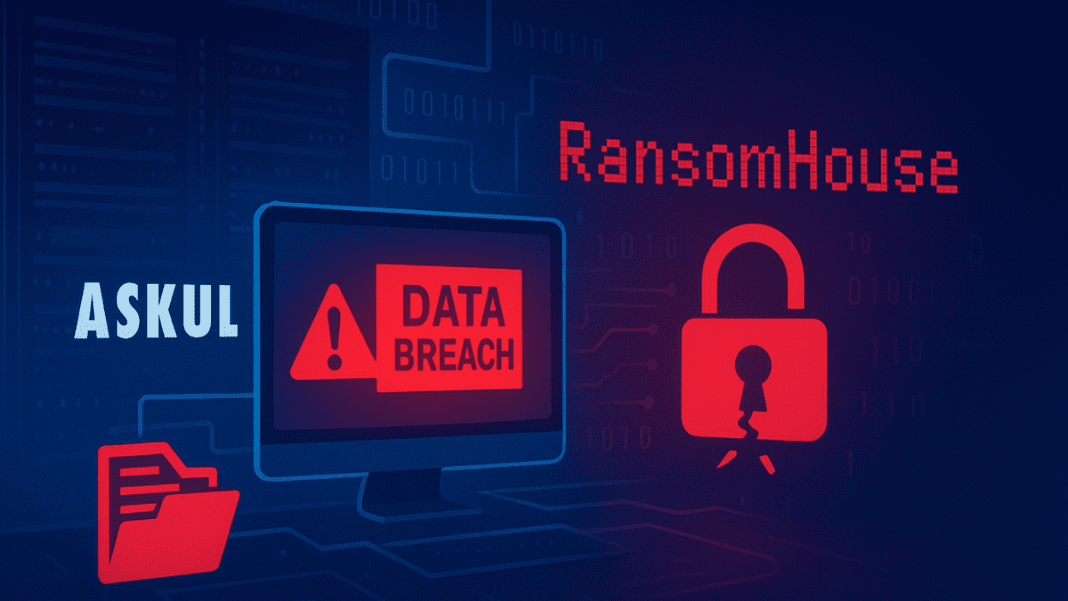A well-known Japanese company, Askul Corp., has become the latest target of a major cyberattack. Askul, which sells office and household goods, recently suffered a serious system glitch that affected its online operations. Now, a Russian hacker group calling itself “RansomHouse” has stepped forward, claiming it was behind the attack.
Askul confirmed that it is aware of the hacker group’s statement. The company said it is currently investigating the situation to understand what exactly happened. For now, Askul has not confirmed how much data was stolen or whether customer information is actually at risk.
The cyberattack has drawn a lot of attention because Askul is a trusted brand used by thousands of customers across Japan. People rely on its website and delivery services for daily needs. A sudden system breakdown and a claim of stolen data have raised serious concerns among customers and business partners alike.
Hacker Group Claims Massive Data Theft
The hacker group RansomHouse said it stole 1.1 terabytes of data from Askul’s computer systems. To put that in perspective, one terabyte is about the size of 500 hours of HD video or millions of pages of documents. The group claims that the stolen data includes customer information and purchase histories, which they say are now available for download on the dark web.
Ransomware attack hits Svenska kraftnät; 280 GB of data reportedly stolen
The dark web is a hidden part of the internet where illegal activities often take place. It’s not accessible through normal browsers, and it’s commonly used for trading stolen data, hacking tools, and confidential information. According to RansomHouse, they have released only the data that could cause the company the most harm. This suggests that the attack was carefully planned and targeted.
Cyber experts from S&J Corp., a Japanese information security firm, discovered the statement made by RansomHouse on the dark web on Thursday night. The company’s president, Nobuo Miwa, said that the hacker group disclosed only information that could seriously damage Askul. He noted that the incident appears to be a well-planned and deliberate attack, rather than a random data breach.
Askul has not said whether it received any ransom demand from the group. However, many similar attacks in the past involved threats to leak or sell data unless the victim company paid large sums of money in cryptocurrency.
Philippines on alert as data breach fears swirl around GCash — company denies system hack
Company Investigating and Customers Worried
Askul has shared that it is working hard to verify the hacker group’s claims. The company’s technical teams are inspecting systems to understand how the cyberattack happened and whether customer data was accessed. It has also taken steps to strengthen its security measures and prevent more damage.
Customers, meanwhile, have expressed concern about the safety of their personal details. Many are worried that their names, email addresses, or order histories could be used in scams or frauds. Cybersecurity specialists advise anyone who has used Askul’s services to stay alert for suspicious messages or emails pretending to be from the company.
Authorities are also monitoring the situation closely, as this incident adds to a growing list of cyberattacks on Japanese companies in recent years. Digital crime is becoming more sophisticated, and even well-protected systems can fall victim to organized hacker groups operating across borders.
For now, Askul has not disclosed whether its business operations are fully restored. The company’s main focus remains on confirming the truth behind RansomHouse’s claims and ensuring the safety of its customers’ data.
The cyberattack on Askul has shown once again how vulnerable even large and trusted companies can be in today’s connected world. As the investigation continues, both experts and customers are waiting for more answers about what really happened behind this digital breach.





